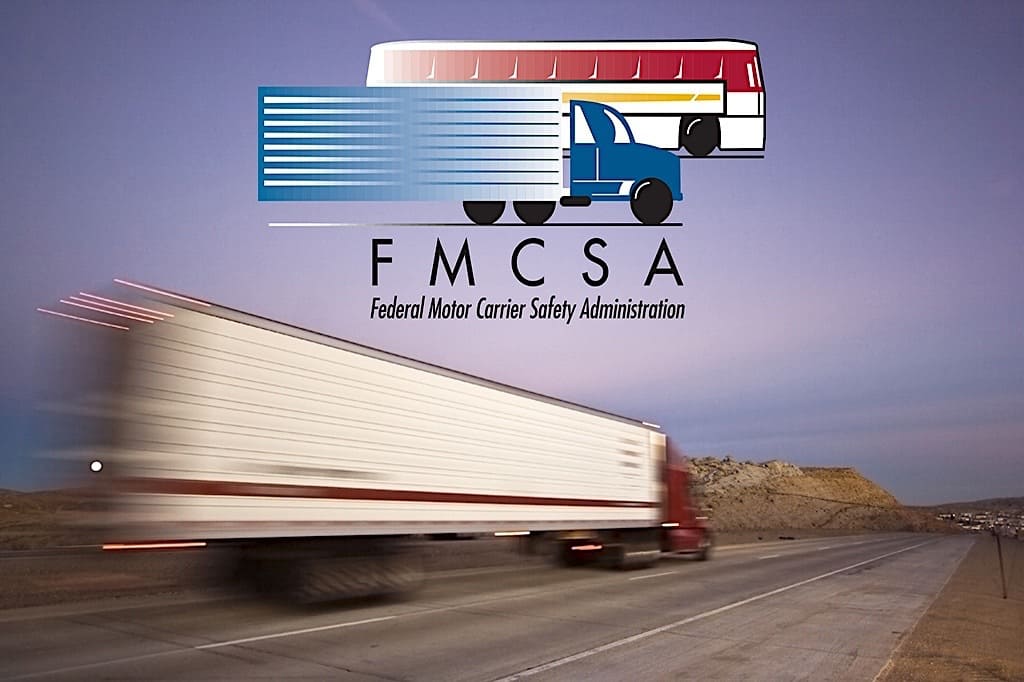Is Your MCS-150 Up to Date?
The FMCSA requires all interstate carriers to file a MCS-150 or MCS-150B if a Safety permit is required. This is required every 24 months based on the last two digits of the US DOT number. The last digit of the number dictates the month and the second to last digit dictates the year. If the second to last digit is even, you report an even number of years. An odd digit, you would report in odd number years. Now, if there has been a change to your operation, increase in units, change of address, etc., it is recommended that you file. You can file your MCS-150 online, fax, or mail. A motor carrier that submits similar information to a State as part of its annual vehicle registration requirement under the Performance and Registration Information System (PRISM) complies if it files this information with the appropriate State commercial motor vehicle (CMV) registration office. The Motor Carrier Identification Report, Form MCS-150, and the Combined Motor Carrier Identification Report and HM Permit Application, Form MCS-150B, with complete instructions, are available from the FMCSA Web site at: http://www.fmcsa.dot.gov (Keyword "MCS-150" or "MCS-150B"); from all FMCSA Service Centers and Division offices nationwide; or by calling 1-800-832-5660. The report can be updated online at www.fmcsa.dot.gov or by faxing the form to the FMCSA at 703-280-4003.
How do I determine when the last time my MCS-150 was updated?
One easy way is to go to the FMCSA safer website: Enter your DOT # then look at your company snapshot. You will see your “FMCSA Form Date” on the left side of the report. If it is older than two years…. update your MCS-150 ASAP! You can update it right from this snapshot by hovering your cursor over “FMCSA Form Date” and clicking on the link.
- When am I required to file a biennial update?
- The compliance date for this requirement (49 CFR 390.19) occurred on November 1, 2013. Filing schedule: Each motor carrier or intermodal equipment provider must file the appropriate form at the...Date Updated: 06/23/2020
- Is an entity required to file a biennial update if there is no change to its information?
- Yes. All entities with a USDOT number are required to file a biennial update every two years according to the prescribed schedule, by the last day of the month. You can file a biennial update...Date Updated: 03/31/2020
- due? Yes. Beginning November 1, 2013, FMCSA is issuing a warning letter by mail to the address on file at least 30 days in advance of a biennial update deadline. Date Updated: 09/24/2019
- number? No, MCS 150 updates must be done either online, fax, or by mail: Online: If your USDOT number is active, you can begin the online update process. By email: You can upload a signed...Date Updated: 01/25/2018
- providers? Very little. Motor carriers, Hazardous Materials Safety Permit applicants/holders, and intermodal equipment providers are already required to update their registration information every 24 months...Date Updated: 11/21/2017
- update? Biennial updates can be completed online, by email, by mail, or by fax. Online: If your USDOT Number is active, you may update your registration online. Detailed instructions are...Date Updated: 05/05/2017
- updates? Failure to complete biennial updates to FMCSA will subject the entities to civil penalties of up to $1,000 per day with a maximum penalty of $10,000. Certain for-hire carriers of passengers and...
https://www.fmcsa.dot.gov/registration/updating-your-registration#biennial-updates
DOT Proposes Use of Oral Fluids for Drug Testing
The U.S. Department of Transportation has published a notice of proposed rulemaking to allow, but not require, the use of oral fluids as an alternative to urinalysis in the agency’s drug testing programs. The proposal would include truck drivers under the Federal Motor Carrier Safety Administration’s drug-testing program.
According to DOT’s Office of Drug and Alcohol Policy & Compliance, the proposal will give employers a choice that will help combat employee cheating on urine drug tests and provide a more economical, less intrusive means of achieving the safety goals of the program. The proposal includes other provisions to update the Department’s regulation and to harmonize with the new Mandatory Guidelines for Federal Workplace Drug Testing Programs using Oral Fluid established by the U.S. Department of Health and Human Services.
The U.S. Department of Health and Human Services, which publishes standards for drug and alcohol testing procedures, has concluded that oral fluids testing provides the same scientific and forensic supportability of drug test results as the federal drug testing programs using urine samples.
Additionally, testing of oral fluids might be preferable in situations where the collection of a urine sample might be difficult, such as in a post-accident setting.
DHHS authorized oral fluid testing for federal employee workplace testing beginning on January 1, 2020.








